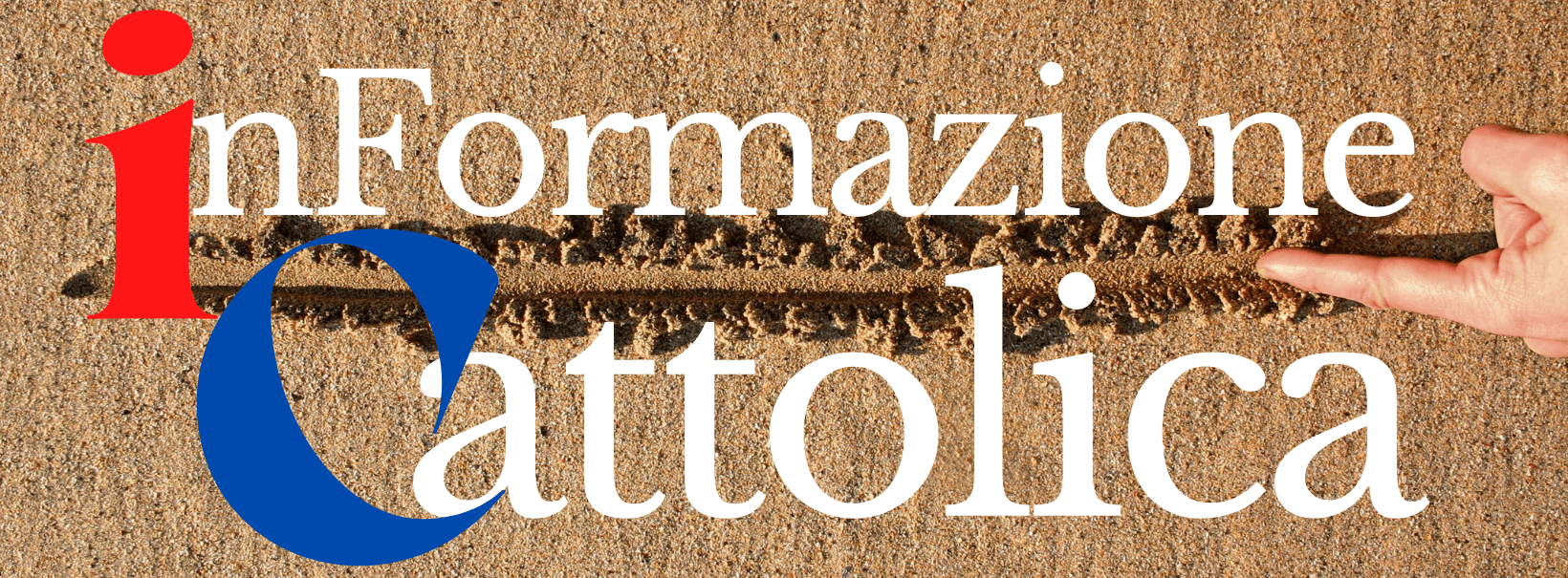 Osservatorio Cardinale Van Thuan Newsletter n.516 del 1 luglio 2014
Osservatorio Cardinale Van Thuan Newsletter n.516 del 1 luglio 2014
by Carson Holloway
The normalization of polygamy would undermine our commitment to human dignity—our sense that each human being is to be valued as an end in him- or herself, and not merely as a means to others’ ends.
Conservatives have long warned that the redefinition of marriage sought by the proponents of same-sex unions will prepare the way for a further redefinition of marriage to include polygamy. Some liberals have already done their part to fulfill this prophecy by assuming that the argument over same-sex marriage is over and by beginning to argue for a normalization of plural marriages. As I have recently argued here at Public Discourse, I do not agree that the argument over same-sex marriage is or should be over. Nevertheless, because some liberals have started to defend polygamy, conservatives who want to preserve our moral inheritance need to think through what kind of arguments caution against this further step.
Defenders of conjugal marriage confront a problem here, because it seems harder to make a principled argument against polygamy than against same-sex marriage. The principled argument against same-sex marriage holds that marriage by its nature is ordered toward procreation. Since this cannot be said of same-sex unions, the argument runs, it makes no sense to recognize them as marriages. This argument is not available — or is not so easily available — n opposition to polygamous marriages. After all, to the extent that such marriages are heterosexual, they can be naturally ordered toward procreation.
Without denying the possibility of a strong principled argument against polygamy—an argument based, say, in the nature of human sexuality and its natural purposes—I would like here to venture a prudential argument against it.
A Prudential Argument Against Polygamy
The normalization of polygamy would undermine our commitment to human dignity, our sense that each human being is to be valued as an end in him- or herself, and not merely as a means to other people’s ends. This commitment to human dignity, however, is a cornerstone of our civilization. If I am correct, we cannot embrace polygamy without imperiling something that both the left and the right agree makes our civilization worthy of admiration, something that both intend to preserve, but that might be diminished or lost through a careless manipulation of fundamental institutions such as marriage and the family.
We may begin with the simple observation that, historically, polygamous societies have not been noted for their respect for human dignity. Of course, correlation does not prove causation, and such societies’ lack of sensitivity to human dignity, as it is understood in the modern West, may have other causes. Most obviously, polygamous societies have tended to be pre-modern societies, and even monogamous pre-modern societies fell short of the respect for human dignity that we expect today.
We are therefore led to wonder whether there is some argument showing that polygamy is necessarily in tension with human dignity, so that if polygamy were to become common, we could reasonably expect it to erode our commitment to human dignity. What follows is a sketch of such an argument.
A polygamous society is much more likely to see men with multiple wives (polygyny) than women with many husbands (polyandry). Experience teaches—and the experience is confirmed by evolutionary accounts of human nature—that men are more inclined to sexual promiscuity than women and that women are more inclined than men to seek a lasting and stable sexual partnership. While some rare social conditions might foster polyandry, and while a few people might choose it in ordinary circumstances, we must expect that where polygamy is permitted, the natural inclinations of men and women will generate polygyny as the general, aggregate effect.
One further consequence of such a society is that some men will not be able to find wives. Since forming a household costs resources, and since a household with more spouses will cost more resources, polygamy will tend to benefit rich men, who will be able to afford to take many wives, and disadvantage poorer men, who will therefore not be able to find any wives at all.
Contemporary liberals profess themselves to be concerned with growing income inequality. If they are tempted to endorse polygamy, they should consider whether it does not foster an even more egregious form of inequality—one in which wealthy men have greater access than poorer men to a basic human good such as marriage and family. They might then ask themselves whether consenting to such a social arrangement does not already begin to undermine our commitment to the equal dignity of human beings as such.
Fatherhood and Human Dignity
Leaving aside the question of inequality, however, we must ask what such polygamous conditions will do to men’s sense of human dignity. There are, of course, many experiences that teach men to appreciate the dignity of other human beings. One of the more powerful of these is fathering children within marriage. Here a man encounters other beings that he is absolutely obligated to care for, but who are not in any sense his property and who will lead lives of their own, with their own ambitions and aims. His children are ends in themselves, not instruments of his, but are nevertheless entitled to his care and attention.
This visceral experience of human dignity through the fathering of children, moreover, is not easily confined to an appreciation for one’s own children alone. It does not take a great deal of moral imagination for a man to realize that his neighbors and friends care for their children just as much as he cares for his own. Those children, too, are ends in themselves, and worthy of his concern and protection, if not to the same intense degree as his own children, who have been entrusted especially to him. Such are the experiences not only of excellent fathers but of decent and even mediocre ones. The station they assume enhances their humanity by enhancing their respect for the humanity of others.
To the extent that polygamy is popularized, it deprives many men of these experiences and thus undermines their understanding of and respect for the dignity of other human beings. Not having children who rely on them, and not having a mother of their children who also needs their support and assistance, they have no other human beings to whom they can be so deeply attached. Nor do the consequences end here.
It is difficult for a person to appreciate the dignity of others without first having a sense of his own dignity. When men cannot be fathers and husbands, they lose an opportunity to realize their own dignity by undertaking important and noble responsibilities to others. Without fatherhood, many men have nothing very important to do; they will simply earn a living and entertain themselves. Of course, men can find opportunities for dignified service without being fathers. Most of the time, however, fatherhood is the way that men gain the self-respect that comes from fulfilling obligations that arise from others’ dependence on them and their virtues. A man thus learns that he is made for something nobler than mere pleasure. This is crucial to his understanding that the same is true of others.
Polygamy Will Increase Economic and Gender Inequality
By depriving some men of the opportunity to marry, polygamy would also diminish their specific sense of the dignity of women. Predictably and sadly, many men who are unable to marry will turn for sexual satisfaction to prostitution and pornography. Needless to say, such activities are hardly a school for learning respect for women. Quite the opposite: they teach men to view women merely as instruments of male pleasure.
These are likely to be polygamy’s negative consequences for the poor man’s appreciation for human dignity. The effects at the opposite end of the economic spectrum would probably be troubling as well. The rich man who can have many wives will still have access to the experiences of fatherhood, but probably not in the same way as under conditions of monogamy. No doubt a man’s experience of the intrinsic goodness of his children is enhanced in a monogamous marriage by the limited number of children such a marriage can produce. Those limits are extended considerably by polygamy, and it is not unreasonable to suspect that the father of large numbers of children by many wives will tend to take less interest in them as individuals.
Nor would polygamy do much to foster the wealthy polygamist man’s appreciation for the dignity of women. The partnership here would be an inherently unequal one, the man participating in several unions, but each woman participating only in one. Consenting to such an unequal arrangement—one in which, say, four women are exclusively dedicated to the man, but the man is not exclusively dedicated to each of the women—could not help but diminish the man’s sense that the women are his equal.
Potential defenders of polygamy might respond that the concerns raised by this article are rather abstract, almost to the point of being unreal. After all, it is admittedly difficult to quantify a decline in respect for human dignity. This reaction, though understandable, is mistaken. A culture of respect for human dignity shows itself in numerous tangible ways, and its absence similarly shows itself in manifold measurable pathologies. As philosopher Christopher Kaczor has observed in Public Discourse, the social science evidence we have at our disposal suggests that polygamous societies havehigher levels of crime and domestic violence and lower levels of investment in children and of education for girls and women.
Nor would we be wise to regard our present culture of monogamy—and our resulting culture of human dignity—as indestructible. Polygamy is in fact very common in human history. Given the male propensity for promiscuity, polygamy in a way conforms to human nature. This suggests—as Ryan Anderson observes in his review of William Tucker’s Marriage and Civilization: How Monogamy Made Us Human—that monogamy requires intense and sustained civilizational effort. Current calls for a normalization of polygamy represent a further slackening of that effort, or an erosion of the social rules that sustain monogamy and the culture of human flourishing that it nourishes.
Perhaps these arguments are not dispositive. They are, however, sufficiently reasonable to reveal the reckless irresponsibility of those who wish to redefine marriage to include polygamy. Such people would like to conduct a great social experiment, with us and our children as the guinea pigs.
Contemporary liberals tend to be environmentalists. In that capacity, they often warn us that even apparently small changes in the natural environment—such as the extinction of a single species—can have far-reaching and damaging consequences for the whole system. They commonly refuse to see, however, that the same concerns apply when we are making changes to our society. In changing the definition of marriage, they think they are accomplishing nothing but an extension of principles they think are good—equality, or sexual liberation. They refuse to acknowledge that they may also be changing the character of our whole civilization.
Carson Holloway is a political scientist and the author of The Way of Life: John Paul II and the Challenge of Liberal Modernity (Baylor University Press)




